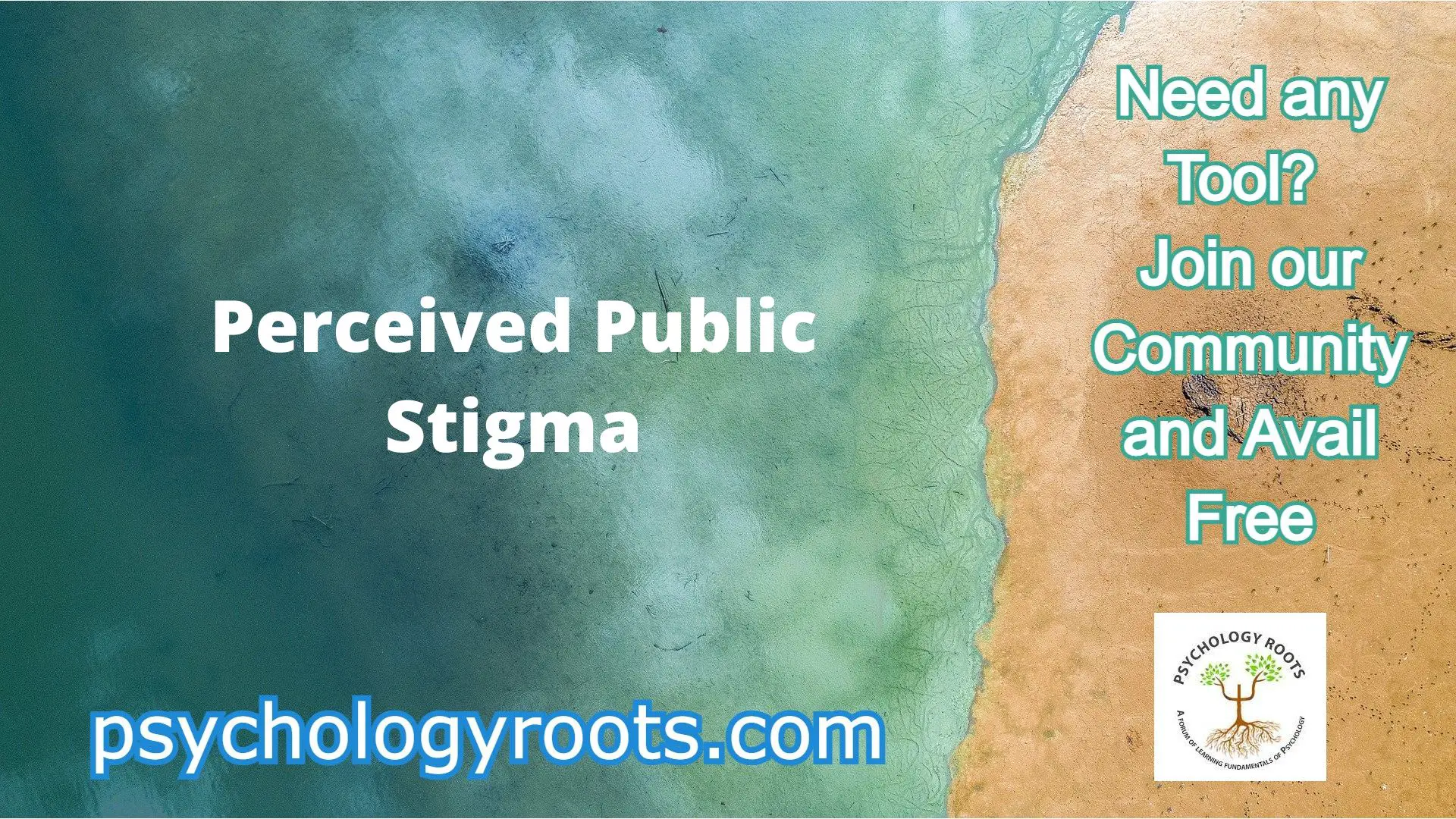Table of Contents
Perceived Public Stigma
Here in this post, we are sharing the “Perceived Public Stigma”. You can read psychometric and Author information. We have thousands of Scales and questionnaires in our collection (See Scales and Questionnaires). You can demand us any scale and questionnaires related to psychology through our community, and we will provide you with a short time. Keep visiting Psychology Roots.
About Perceived Public Stigma
We measured perceived public stigma using an adaptation of the DiscriminationDevaluation (D-D) Scale developed by Link and colleagues, which has been used in several previous studies (Link, 1987; Link, Cullen, Struening, Shrout, & Dohrenwend, 1989). The D-D scale asks people how much they agree with each of 12 statements that begin with “Most people believe . . .” or “Most people think . . . ,” or “Most people would . . .” followed by a stereotype, example of discrimination, or the opposite (an accepting view or behavior). The original D-D scale refers to a “mental patient” or a “former mental patient” or a person “who has been hospitalized for mental illness.”
We adapted the wording to refer instead to “a person who has received mental health treatment” because our objective was to measure perceived stigma regarding a broader concept of mental health treatment (rather than institutional treatment for severe mental illness per se). As in the original D-D scale, the answer choices were on a 6-point Likert scale: strongly agree, agree, somewhat agree, somewhat disagree, disagree, strongly disagree. As in the original use of the scale, we constructed an index of perceived stigma by coding each response as 0, 1, 2, 3, 4, or 5 (with higher numbers referring to answers indicating higher perceived stigma) and calculating the average across the 12 items for each individual. We found a high internal reliability (Cronbach’s α = .89) in this adapted scale.

Perceived Public Stigma
Avail Reference Files:
[sociallocker id=64051]
Information:
The purpose of our website is only to help students to assist them in finding the best suitable instrument for their research, especially in Pakistan where students waste a lot of time in search of instruments. It is totally free of cost and only for creating awareness and assisting students and researchers with good research. Moreover, it is necessary for you to take the permission of scales from their representative authors before use because copyrights are reserved by the respected authors.
Help Us Improve This Article
Did you find an inaccuracy? We work hard to provide accurate and scientifically reliable information. If you have found an error of any kind, please let us know.
Add comment. we appropriate your effort.
If you have any scale or any material related to psychology kindly share it with us at psychologyroots@gmail.com. We help others on behalf of you.
Follow